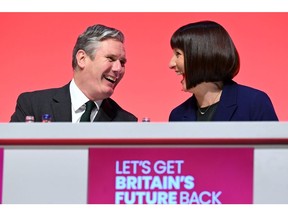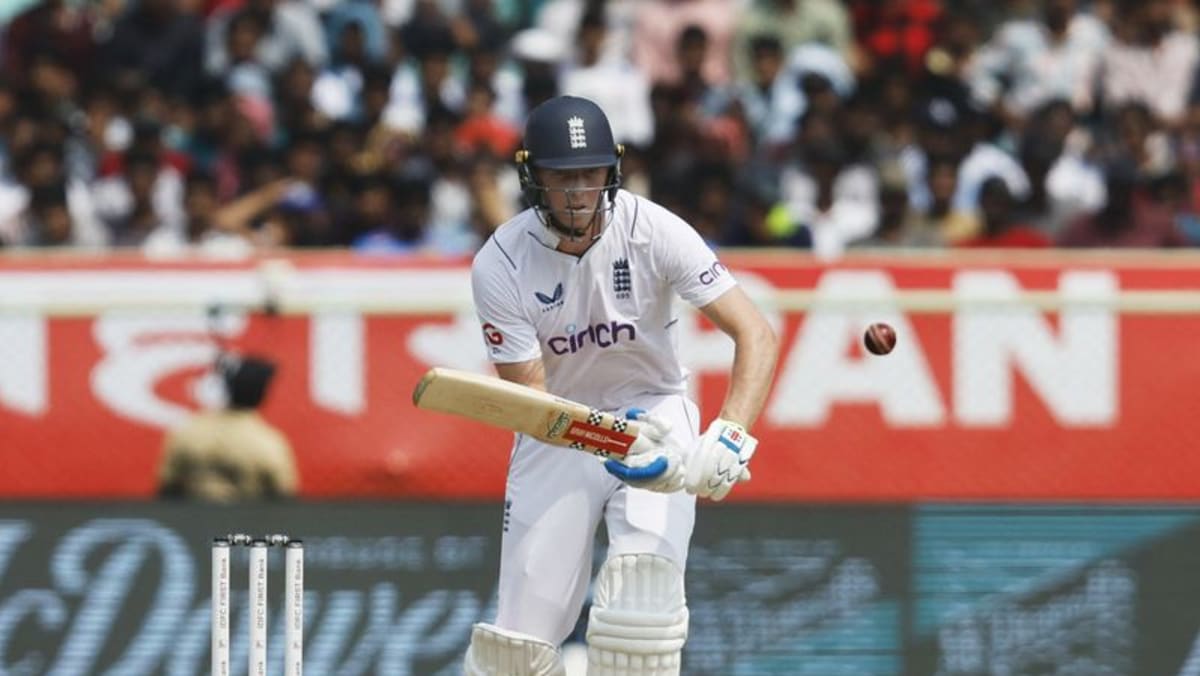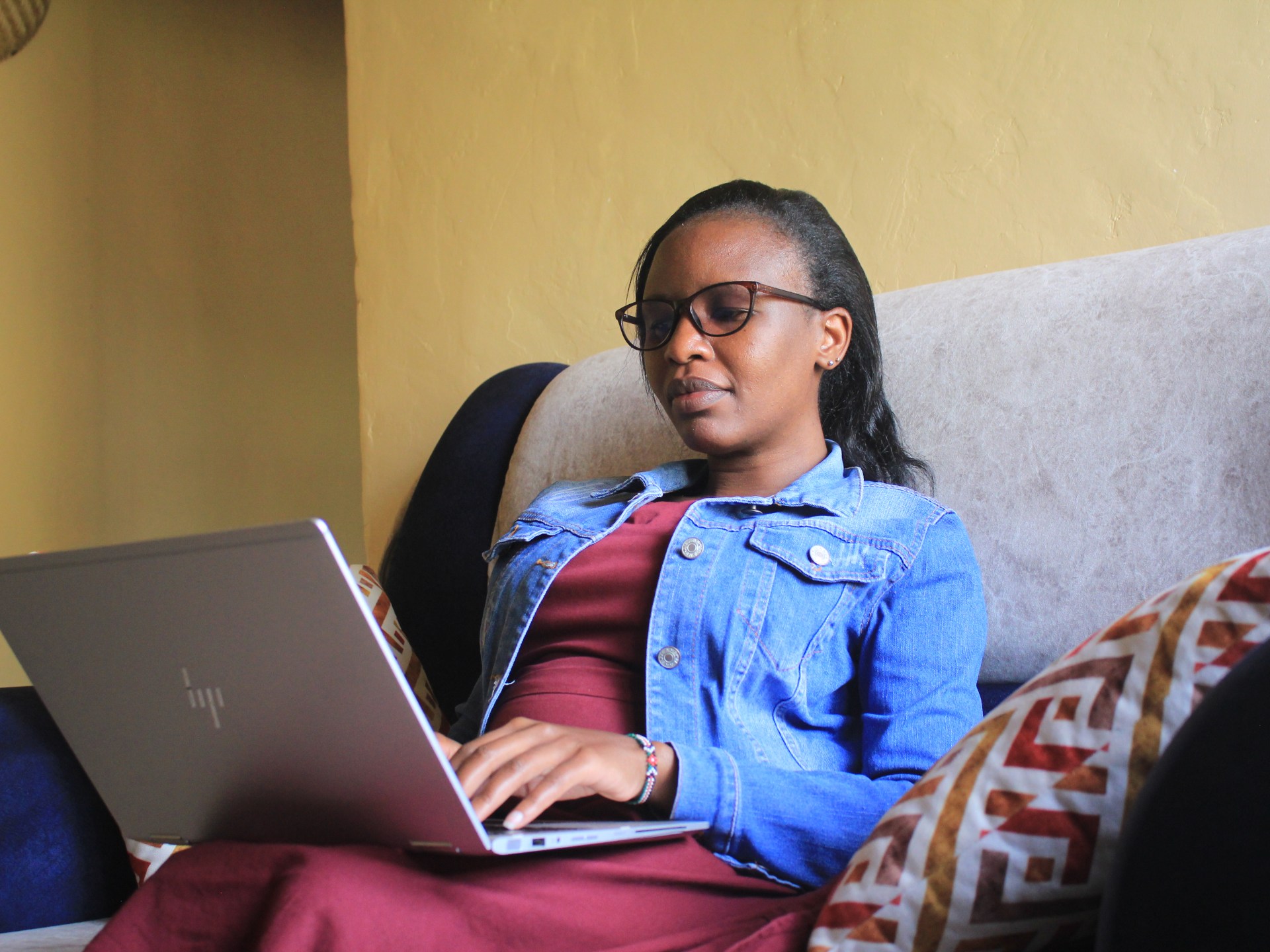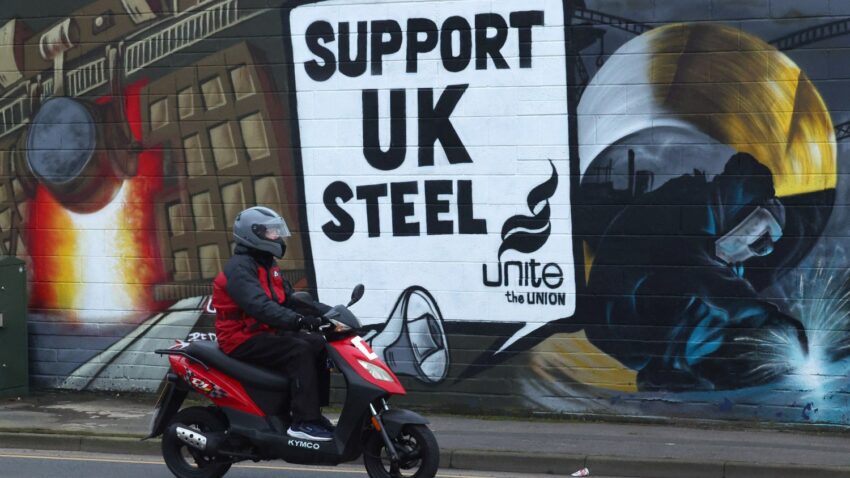UK opposition leader Keir Starmer and his shadow chancellor Rachel Reeves breezed through their encounter with executives at the Labour Party’s business conference this week. Their talks with colleagues are rougher, exposing growing disagreement over how to win a national election.

Article content
(Bloomberg) — UK opposition leader Keir Starmer and his shadow chancellor Rachel Reeves breezed through their encounter with executives at the Labour Party’s business conference this week. Their talks with colleagues are rougher, exposing growing disagreement over how to win a national election.
For months, Starmer’s senior team have been at odds over a key part of their vision for government: a commitment Reeves made in 2021 to spend £28 billion a year turning Britain green, including 100% renewable energy by 2030. The cost has become caught in the cross-hairs of a worsening economy, Conservative Party attacks over tax and spend, and the determination of Starmer and Reeves to convince voters Labour will not be reckless with the public finances.
Advertisement 2
Article content
Article content
On Friday, Labour’s Treasury spokesman Darren Jones appeared to confirm what Reeves and Starmer avoided saying to executives, that instead of sticking to the full pledge, they will decide what is affordable only once Labour is in office.
On the one hand, that’s a logical stance. But it’s also triggered criticism from Labour officials about why a headline spending figure was attached to the plan and made a hostage to fortune. Rather than affirming a commitment to fiscal discipline, which anyway annoys activists who want a more ambitious plan for government, backing away risks inviting more Tory attacks over flip-flopping.
While Labour shadow ministers and officials who spoke to Bloomberg did not think the policy confusion would drastically cut the party’s commanding lead in national opinion polls, they said it spoke to bigger issues. Which strategy will best convert that advantage into votes, for example, or how Labour will handle competing pressures facing an incoming government.
There have been two major divisions among senior Labour figures ahead of the election expected in the second half of 2024, people familiar with the matter said. The first is over how far Starmer and Reeves should self-impose a fiscal strait-jacket, to counter Tory attacks. The second has been between Starmer, Reeves and their aides not over fiscal prudence, but how to go about it.
Article content
Advertisement 3
Article content
Since taking over in 2020, Starmer has focused on dissociating Labour from his left-wing predecessor Jeremy Corbyn. Reeves has taken that into overdrive in recent weeks, ruling out raising income tax, corporation tax, capital gains tax or introducing a wealth tax. The former Bank of England economist has also been wooing businesses, unlike Corbyn, and this week said Labour would not reintroduce a cap on bankers’ bonuses scrapped by the government last year.
The strategy illustrates how Labour remains haunted by the 1992 general election, when it led ex-premier John Major’s Tories in the polls and the UK was still reeling from a deep recession. It suffered a shock defeat, which Labour blamed on right-wing newspapers swaying voters.
But just as Tony Blair found when he dragged Labour to the right to win five years later, so Starmer and Reeves face pushback from a party that has a strong labor union tradition and working-class roots. The party also has an underdog instinct, having spent the majority of its history in opposition.
Some of their critics think it’s unwise to rule out tax rises when Chancellor of the Exchequer Jeremy Hunt’s giveaways before the election may leave little room for spending in office. Others say the greatest threat to Starmer is not the fear that he’ll increase spending, but the charge that it isn’t clear what he believes or what he’ll do with power.
Advertisement 4
Article content
The announcement on the bankers’ bonus cap, while largely symbolic because studies show the measure has little impact on reducing overall pay, came out of the blue for many Labour lawmakers and left them facing attacks from other parties on the political left.
According to Luke Tryl of the More in Common think tank, these issues don’t matter significantly with a 20-point lead. “If the polls narrow and the lack of a clear offer from Labour leaves voters thinking ‘what’s the point?’, that could make all the difference to the shape of the next Parliament.”
Shadow cabinet ministers have requested talks on the green policy and £28 billion figure in recent weeks and been rebuffed, people familiar with the matter said. Some have expressed wariness about defending Labour’s policies on broadcast rounds in case Starmer and Reeves jettison them in future.
Their aides have sought to reassure shadow ministers key proposals will not be dropped, including the plan to tax private school fees and abolish the tax break for people with non-domicile status.
Reeves has argued that fiscal discipline, coupled with the worse economic picture, must take precedence to blunt Tory criticism. But there’s an irony that it’s the deterioration in the public finances under the Conservatives that is effectively strengthening the attacks.
Advertisement 5
Article content
The UK’s tax burden has risen to a postwar high under Prime Minister Rishi Sunak’s party, and while he has started announcing giveaways, warnings of higher levies may have significant leverage in a cost-of-living crisis.
Still, Labour should not run scared, said John McTernan, a strategist for BCW Global and a former adviser to Blair. “Labour shouldn’t dilute its ambition, they should double down on their dividing line: the Tories have no plan for the most urgent challenge facing the UK. We do,” he said.
The Labour leadership first scaled back on its £28 billion-a-year pledge last summer, when it was reduced to an ambition to be fulfilled by the end of its first term. Some Labour officials think that decision was a mistake and Starmer and Reeves should have gone further, announcing then that they couldn’t put a number on it until they knew what state the finances would be in.
While Reeves lobbied internally for a clearer position, Starmer’s unwillingness meant the uncertainty continued into election year, people familiar with the matter said. Some put that down to the leader’s personal loyalty to Ed Miliband, the shadow energy secretary who has strongly argued for the policy.
Meanwhile for the Conservatives, Labour’s discomfort is providing a rare source of optimism. A party strategist said they would try to make the vote about tax, joking that there is only ever really one type of Tory campaign: trying to scare aspirational middle-class swing voters that Labour will put their taxes up.
It’s a battle Starmer and Reeves appear bent on avoiding.
—With assistance from Ellen Milligan.
Article content
#Labour #Unity #Strains #Starmers #Focus #Tax #Business






